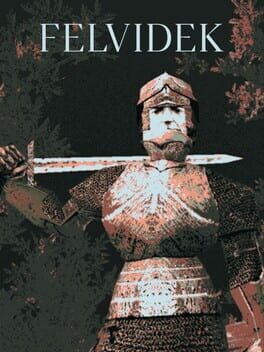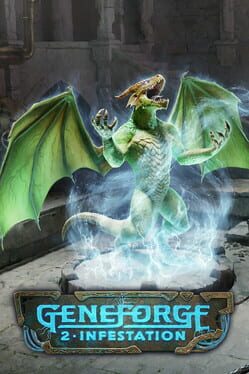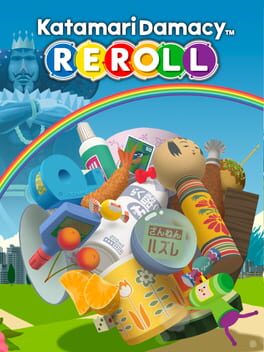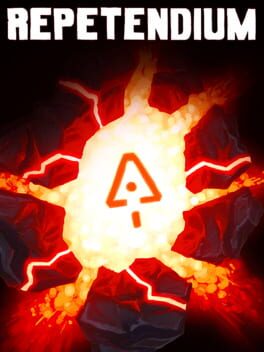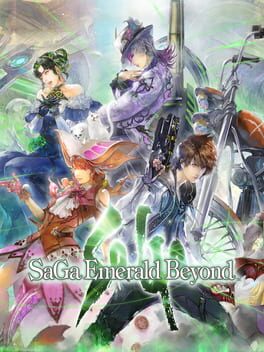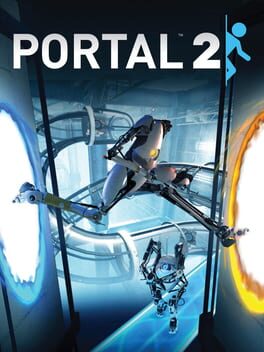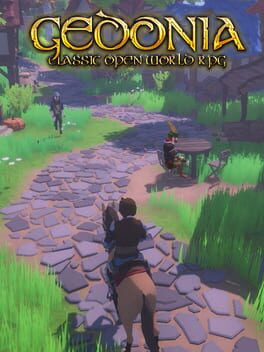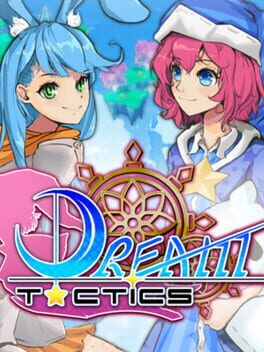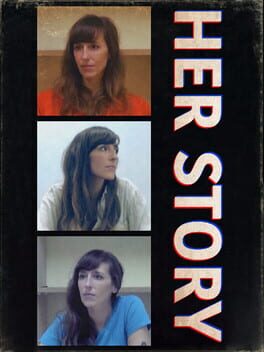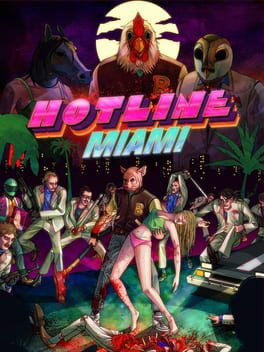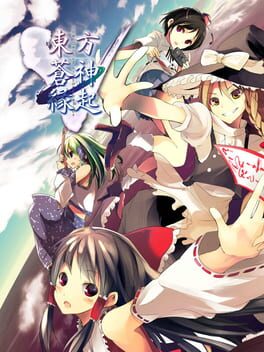jademonkey
2024
Another cool little RPGmaker game.
Felvidek is set in 15th century Slovakia/Hungary, in small fiefdom beset by both the Hussite uprising and other, more nefarious, cultists. There's not a whole lot of depth in the period politics or anything, but there's enough to make it an engaging and unique backdrop for the story. The game is frequently quite funny, with the oddly realistic style and dry humor giving it a bit of a Monty Python feel. The old-timey dialogue is fun and enhances both the humor and immersion, though at times the sentence structures get a bit difficult to parse.
Felvidek not a big game, but exploration is fun and rewarding. Your characters only get more powerful through acquiring better equipment and stat enhancing food items, so checking out all of the hidden corners and looking for sidequests is heartily rewarded.
Unfortunately, the combat, despite featuring amusing animations, is about as basic of RPGmaker fare as you get. You have a very limited number of abilities and a low amount of uses of those abilities. To the games credit, you'll want to make use of your stuns and armor piercing abilities, but it's just not all that exciting. Despite running out of the 'tool' points that fuel your special abilities quickly, you can essentially always backtrack to a church after each fight and refill both those points and your HP. This means it's optimal to just always go all in and then run back for healing, which is a bit annoying. I'd have preferred if the game was a bit harder and just healed you to full after each fight in some fashion. Or, frankly, I think it would have been more enjoyable as an adventure game with a few puzzle fights. Either way, the game is fairly short, taking me just 5.5 hours while doing my best to explore everything, and combat wasn't overused. So, in the end, the milquetoast combat wasn't that much of an issue.
The soundtrack was a nice breath of fresh air, with some acoustic guitar, some prog-rockish tunes, and a bit of avant-garde electronica. Overall, I felt a lot of 70s vibes, which I absolutely love. Great stuff.
In the end, Felvidek didn't blow me away, but was definitely worth experiencing for the presentation and humor.
Felvidek is set in 15th century Slovakia/Hungary, in small fiefdom beset by both the Hussite uprising and other, more nefarious, cultists. There's not a whole lot of depth in the period politics or anything, but there's enough to make it an engaging and unique backdrop for the story. The game is frequently quite funny, with the oddly realistic style and dry humor giving it a bit of a Monty Python feel. The old-timey dialogue is fun and enhances both the humor and immersion, though at times the sentence structures get a bit difficult to parse.
Felvidek not a big game, but exploration is fun and rewarding. Your characters only get more powerful through acquiring better equipment and stat enhancing food items, so checking out all of the hidden corners and looking for sidequests is heartily rewarded.
Unfortunately, the combat, despite featuring amusing animations, is about as basic of RPGmaker fare as you get. You have a very limited number of abilities and a low amount of uses of those abilities. To the games credit, you'll want to make use of your stuns and armor piercing abilities, but it's just not all that exciting. Despite running out of the 'tool' points that fuel your special abilities quickly, you can essentially always backtrack to a church after each fight and refill both those points and your HP. This means it's optimal to just always go all in and then run back for healing, which is a bit annoying. I'd have preferred if the game was a bit harder and just healed you to full after each fight in some fashion. Or, frankly, I think it would have been more enjoyable as an adventure game with a few puzzle fights. Either way, the game is fairly short, taking me just 5.5 hours while doing my best to explore everything, and combat wasn't overused. So, in the end, the milquetoast combat wasn't that much of an issue.
The soundtrack was a nice breath of fresh air, with some acoustic guitar, some prog-rockish tunes, and a bit of avant-garde electronica. Overall, I felt a lot of 70s vibes, which I absolutely love. Great stuff.
In the end, Felvidek didn't blow me away, but was definitely worth experiencing for the presentation and humor.
2007
I remember going over to a friend's dorm and watching him do a speed run of Portal when it first came out, yet somehow I forgot that I'd actually played it myself until I was over halfway through the game this time around. Weird how memory works.
Anyway, it's just as great of a game as I didn't remember it being.
Portal does a great job of teaching mechanics, has a great central conceit, and has great humor. There's only a couple of small things that keep it from five stars for me. Primarily, the game just doesn't go quite far enough with the concepts for my tastes. I'd like a bit more of a challenge and to see the ability used in a couple more ways. The only other complaint is that the portals are a bit skinny which makes some execution slightly more annoying than is necessary. That's really a nitpick, though.
A certified classic.
Anyway, it's just as great of a game as I didn't remember it being.
Portal does a great job of teaching mechanics, has a great central conceit, and has great humor. There's only a couple of small things that keep it from five stars for me. Primarily, the game just doesn't go quite far enough with the concepts for my tastes. I'd like a bit more of a challenge and to see the ability used in a couple more ways. The only other complaint is that the portals are a bit skinny which makes some execution slightly more annoying than is necessary. That's really a nitpick, though.
A certified classic.
Geneforge 2: Infestation is, unsurprisingly, a direct sequel to Geneforge 1: Mutagen. All of the things I liked about that game hold true here as well: great exploration, world building, factions, choice and consequence, and so on. It nails the core RPG experience. My review for the first game describes the setting and why I like it so much, so I'll skip writing that out again.
In Geneforge 1, I burned out because there was just too much meaningless combat, and quit 30 hours in. That didn't happen this time around. Geneforge 2 simply makes combat more rewarding. There were more useful equipment upgrades to find. Most spells and abilities in from the first game received some tweaks, resulting in more viable combat options. There is also a whole extra tier of creations and spells to unlock late game. This helped keep things a bit more varied. I still did hit the point where I was ready to finish, but, luckily, I was just a few hours away from being able to complete the main quest at that time. I did leave a whole heap of sidequests unfinished, but that's perfectly fine.
The ending itself was very satisfying. I'm glad I was able to stick it through this time. Great game.
In Geneforge 1, I burned out because there was just too much meaningless combat, and quit 30 hours in. That didn't happen this time around. Geneforge 2 simply makes combat more rewarding. There were more useful equipment upgrades to find. Most spells and abilities in from the first game received some tweaks, resulting in more viable combat options. There is also a whole extra tier of creations and spells to unlock late game. This helped keep things a bit more varied. I still did hit the point where I was ready to finish, but, luckily, I was just a few hours away from being able to complete the main quest at that time. I did leave a whole heap of sidequests unfinished, but that's perfectly fine.
The ending itself was very satisfying. I'm glad I was able to stick it through this time. Great game.
I got Katamari Damacy Reroll in some Bandai Namco Bundle last year. I honestly didn't have much interest in it -- I'd tried the original 20 years ago at a friends house and thought the controls were horrible and why would I even want to roll things up anyway?
Well, last week, I couldn't decide what to play and a friend told me to play a game that starts with K. Katamari Damacy fit the bill, so why not give it another shot?
Turns out, rolling things up is fun and the controls are just fine after about 10 minutes of getting used to them. The sense of progression from going to a tiny katamari, carefully navigating a park while dodging cats, dogs, and pineapples, to outright rolling up entire cities is great. It's so cathartic to go back to an area you were getting bounced around in a bunch and just steamroll the entire place.
The wacky, funky sound track is absolutely perfect. I honestly couldn't imagine a more perfect accompaniment to the game. The bizarre cutscenes were also a joy, particularly the ending.
I only have a couple of minor complaints here. There were a few objects that seemed to require a way bigger katamari than I'd expect to pick up. Not a big deal, but slightly annoying. I also didn't care for the challenge levels that were about rolling up a single item or guesstimating the katamari's size, but you only have to show up to complete those levels if you're not going for a high score.
Overall, a fun, chill time. It's just about the perfect game to pop into for 15-30 minutes and come out smiling.
Well, last week, I couldn't decide what to play and a friend told me to play a game that starts with K. Katamari Damacy fit the bill, so why not give it another shot?
Turns out, rolling things up is fun and the controls are just fine after about 10 minutes of getting used to them. The sense of progression from going to a tiny katamari, carefully navigating a park while dodging cats, dogs, and pineapples, to outright rolling up entire cities is great. It's so cathartic to go back to an area you were getting bounced around in a bunch and just steamroll the entire place.
The wacky, funky sound track is absolutely perfect. I honestly couldn't imagine a more perfect accompaniment to the game. The bizarre cutscenes were also a joy, particularly the ending.
I only have a couple of minor complaints here. There were a few objects that seemed to require a way bigger katamari than I'd expect to pick up. Not a big deal, but slightly annoying. I also didn't care for the challenge levels that were about rolling up a single item or guesstimating the katamari's size, but you only have to show up to complete those levels if you're not going for a high score.
Overall, a fun, chill time. It's just about the perfect game to pop into for 15-30 minutes and come out smiling.
2022
Repetendium is a competent-enough bullet heaven game with a side of mining. You pick a character (auto aim or not, mainly) and a weapon from the usual varieties of shotguns, grenade launchers and lasers at the start. The upgrades you get during a run are mostly stand fare and a bit limited right now, so two runs with the same weapon end up feeling very same-y. It's in early access, so I may check back in after some updates and more content is added. It does have a co-op mode, so I may check that out at some point as well.
2024
I think I just no-lifed SaGa Emerald Byond harder than any game I've ever played before, even as a kid on summer break. Much less as a working adult in my late 30s.
I'll get a few basics out of the way before jumping into my rants on what I like.
This is a budget game. The character models and UI design really show the lack of money. Voice acting is very sparse.
This is not a narrative tour de force. The storylines are schlocky B-movie kitchen-sink nonsense, but, if you like that type of thing, it's very fun and frequently funny. I had an absolute blast with it. I love singing robots and saving molemen and helping plant people bloom, but I can easily see people being put off.
This is not a standard JRPG with dungeons and exploration. You move from event to event on a pop-up book like map, engaging with visual novel type sections or combat. It's a stripped down experience in many ways. As with the narrative, I enjoy this and relish the change of pace, but can easily see how others might not.
Kenji Ito delivered another banger soundtrack. This might be the thing Emerald Beyond has most in common with its higher budget cousins from Square.
With that out of the way, I'll dig into the real meat of what I love about Emerald Beyond. There are two main factors: the combat and the new-game plus cycle.
The combat is absolutely excellent, and sits as my favorite JRPG combat, maybe even surpassing SaGa Scarlet Grace. Much like Scarlet Grace, it's all about timeline manipulation and features a shared action point pool for your party. The specifics of how "united attacks" work has changed and is easier to perform -- for both you and your enemies. More importantly, there's far more variety in your characters -- humans with a ton of weapon types and magic, mechs that scale off equipment and get unique abilities from it, monsters that absorb enemy skills, and ephemerals who get more powerful as they cyclically die and are reborn. The systems are so much fun. Well, except for trading, but I'll circle back to that.
The most mind-blowing thing about the game is its new-game plus structure. There are 5 characters with their own stories and 17 worlds, each also with their own story. All of these stories -- characters and worlds -- can change across successive playthroughs. You can make different choices on who to help, sometimes new options are simply available to you, sometimes you get an entirely different story. Sometimes you recruit entirely different allies. The second playthrough for some characters is almost a sequel to their initial playthrough. It's so cool to see the huge variety in ways things can possible play out as you come back for successive runs. All of the games systems are made to work over multiple 5-20 hour runs, so your overall strength and progress is moving forward even when you restart with a new character.
My biggest complaint about the game is the aforementioned trading system. Essentially, once unlocked, after each and every battle, you have the option to 'sell' items for a random choice from several items, and the option to 'buy' items in fixed deals. These deals are all based on your trading rank, which takes hundreds of trades to level up. The best way to do this is to constantly trade high level weapons for other high level weapons that you then trade for more and so on. It's nothing but tedium, and I don't even have it maxed out after 75 hours of play. The UI is slow, requires a ton of clicks, and is just overall miserable to interact with. Unfortunately, it's the best and most consistent way to get crafting materials, so if you choose to ignore it, you are putting yourself at a huge disadvantage. It wasn't enough to knock the game out of favorite territory for me, but it was extremely annoying and unnecessary -- they could have just tied the trades to your battle rank and had the interface be an option directly at the end of battle screen. I guess it wouldn't be a SaGa game without at least one terrible system, though.
So, uh, rant about trading aside, Emerald Beyond has made its way right to the top of my favorites list. I never enjoy a game for 75 hours and still have plans to come back for more after a break. That just doesn't happen for me. I'm literally considering figuring out of I can mod trading out of the game. Give the demo a try. You'll probably hate it, but you might love it as much as I do.
I'll get a few basics out of the way before jumping into my rants on what I like.
This is a budget game. The character models and UI design really show the lack of money. Voice acting is very sparse.
This is not a narrative tour de force. The storylines are schlocky B-movie kitchen-sink nonsense, but, if you like that type of thing, it's very fun and frequently funny. I had an absolute blast with it. I love singing robots and saving molemen and helping plant people bloom, but I can easily see people being put off.
This is not a standard JRPG with dungeons and exploration. You move from event to event on a pop-up book like map, engaging with visual novel type sections or combat. It's a stripped down experience in many ways. As with the narrative, I enjoy this and relish the change of pace, but can easily see how others might not.
Kenji Ito delivered another banger soundtrack. This might be the thing Emerald Beyond has most in common with its higher budget cousins from Square.
With that out of the way, I'll dig into the real meat of what I love about Emerald Beyond. There are two main factors: the combat and the new-game plus cycle.
The combat is absolutely excellent, and sits as my favorite JRPG combat, maybe even surpassing SaGa Scarlet Grace. Much like Scarlet Grace, it's all about timeline manipulation and features a shared action point pool for your party. The specifics of how "united attacks" work has changed and is easier to perform -- for both you and your enemies. More importantly, there's far more variety in your characters -- humans with a ton of weapon types and magic, mechs that scale off equipment and get unique abilities from it, monsters that absorb enemy skills, and ephemerals who get more powerful as they cyclically die and are reborn. The systems are so much fun. Well, except for trading, but I'll circle back to that.
The most mind-blowing thing about the game is its new-game plus structure. There are 5 characters with their own stories and 17 worlds, each also with their own story. All of these stories -- characters and worlds -- can change across successive playthroughs. You can make different choices on who to help, sometimes new options are simply available to you, sometimes you get an entirely different story. Sometimes you recruit entirely different allies. The second playthrough for some characters is almost a sequel to their initial playthrough. It's so cool to see the huge variety in ways things can possible play out as you come back for successive runs. All of the games systems are made to work over multiple 5-20 hour runs, so your overall strength and progress is moving forward even when you restart with a new character.
My biggest complaint about the game is the aforementioned trading system. Essentially, once unlocked, after each and every battle, you have the option to 'sell' items for a random choice from several items, and the option to 'buy' items in fixed deals. These deals are all based on your trading rank, which takes hundreds of trades to level up. The best way to do this is to constantly trade high level weapons for other high level weapons that you then trade for more and so on. It's nothing but tedium, and I don't even have it maxed out after 75 hours of play. The UI is slow, requires a ton of clicks, and is just overall miserable to interact with. Unfortunately, it's the best and most consistent way to get crafting materials, so if you choose to ignore it, you are putting yourself at a huge disadvantage. It wasn't enough to knock the game out of favorite territory for me, but it was extremely annoying and unnecessary -- they could have just tied the trades to your battle rank and had the interface be an option directly at the end of battle screen. I guess it wouldn't be a SaGa game without at least one terrible system, though.
So, uh, rant about trading aside, Emerald Beyond has made its way right to the top of my favorites list. I never enjoy a game for 75 hours and still have plans to come back for more after a break. That just doesn't happen for me. I'm literally considering figuring out of I can mod trading out of the game. Give the demo a try. You'll probably hate it, but you might love it as much as I do.
2011
Much like the first game, the story and humor are on point in Portal 2. Wheatley is a great counterpart for GLaDOS. The mechanics are substantially expanded from the first game with the various types of goo, and I enjoyed the variety of new puzzles that provided.
The intro to the game really drags on, though, with lots of incredibly easy puzzles and loading screens. I would have preferred if it jumped into more challenging puzzles much more quickly. I liked the general idea of the non-puzzle areas, but I did get a bit tired of hunting around for the little bit of wall that I could put a portal on.
Those are just minor complaints, though. While Portal 2 isn't necessarily a personal favorite, I can see why it's generally rated among the best games of all time.
The intro to the game really drags on, though, with lots of incredibly easy puzzles and loading screens. I would have preferred if it jumped into more challenging puzzles much more quickly. I liked the general idea of the non-puzzle areas, but I did get a bit tired of hunting around for the little bit of wall that I could put a portal on.
Those are just minor complaints, though. While Portal 2 isn't necessarily a personal favorite, I can see why it's generally rated among the best games of all time.
2020
It's always impressive when a solo dev is able to put together an open world RPG. That's an incredible feat.
Unfortunately, nothing ever really grabbed me in Gedonia, so I called it quits at about 8 hours in.
I'll start with the good. It seems like the character progression has a lot of cool options -- I made a bard/necromancer hybrid that was surprisingly powerful. You get a mount early and can call it with a single click. Between that and a waystone system, the game has convenient enough travel that there's no need for Skyrim style instant fast travel.
Unfortunately, everything else was just average or outright bad. The combat itself is serviceable, but not particularly inspiring. The world is fine, but it didn't offer anything particularly unique or appealing to me. The writing and plot is outright bad, even accounting for the game not being written by a native English speaker. The game would have done better to not have voice acting at all.
I don't regret buying Gedonia. I had a few hours of fun and threw a few bucks to an indie dev, but I don't think I'll be giving it another chance.
Unfortunately, nothing ever really grabbed me in Gedonia, so I called it quits at about 8 hours in.
I'll start with the good. It seems like the character progression has a lot of cool options -- I made a bard/necromancer hybrid that was surprisingly powerful. You get a mount early and can call it with a single click. Between that and a waystone system, the game has convenient enough travel that there's no need for Skyrim style instant fast travel.
Unfortunately, everything else was just average or outright bad. The combat itself is serviceable, but not particularly inspiring. The world is fine, but it didn't offer anything particularly unique or appealing to me. The writing and plot is outright bad, even accounting for the game not being written by a native English speaker. The game would have done better to not have voice acting at all.
I don't regret buying Gedonia. I had a few hours of fun and threw a few bucks to an indie dev, but I don't think I'll be giving it another chance.
2024
This year has been absolutely killer for indie titles, and Dream Tactics is no exception.
You play as Neru, a human who has been summoned to the dream world to protect it from the Dream Eater. You explore 4 regions of the dream world, fighting pillows and collecting dream fragments to become strong enough to face the dream eater. It's a simple set up, but the light-hearted writing and characters make it a lot of fun.
Combat plays out on a tactical grid, with you controlling 4 characters against much greater numbers of armed pillows. Each character has a deck of card that determines which moves are available each turn. All of the mechanics you would expect are present -- action point costs for each action, discard and redraw, etc. There's a lot of flexibility in how you build the decks, and a huge amount of equipment options to make some really cool builds. I used 5/7 characters over the course of my playthrough, and each one had multiple viable ways I could build them, and played quite differently from the others. I played on hard difficulty, but it was only challenging until I'd recruited a 4th party member to fill out a full team. After that, as long as I kept my builds up to date, I didn't particularly struggle in any of the battles, though a careless move could easily lead to losing a character. My only real complaint is that some of the battles lasted too long for my tastes -- there could be multiple waves of reinforcements to deal with in battles that probably should have just been left quick and easy.
The other pillar of gameplay is exploration. There are chests hidden throughout each of the worlds with items and cards to obtain. These chests can be guarded by little obstacle courses that felt reminiscent of trap rooms in the 2D Zelda games. Dying in the trap room just sends you back to the beginning, so it's low stakes. I enjoyed the change of pace the exploration elements offer, but it may not be for everyone.
The last thing to mention is the ending of the game. Without spoiling anything, the final fight was one of my favorite across any tactical RPG I've played. Very cool. Unfortunately, the game just cuts to credits as soon as the fight plays out -- no final dialogue or wrapping up what happens. Most of the emotional pay off happened just before the final fight, but there needed to be at least one scene there for finality. EDIT: The devs added an epilogue scene a couple days after writing this and the ending feels much better now!
All that said, I think the game is an easy recommendation for fans of tactical RPGs, so long as the light-heartedness and style isn't too unappealing.
You play as Neru, a human who has been summoned to the dream world to protect it from the Dream Eater. You explore 4 regions of the dream world, fighting pillows and collecting dream fragments to become strong enough to face the dream eater. It's a simple set up, but the light-hearted writing and characters make it a lot of fun.
Combat plays out on a tactical grid, with you controlling 4 characters against much greater numbers of armed pillows. Each character has a deck of card that determines which moves are available each turn. All of the mechanics you would expect are present -- action point costs for each action, discard and redraw, etc. There's a lot of flexibility in how you build the decks, and a huge amount of equipment options to make some really cool builds. I used 5/7 characters over the course of my playthrough, and each one had multiple viable ways I could build them, and played quite differently from the others. I played on hard difficulty, but it was only challenging until I'd recruited a 4th party member to fill out a full team. After that, as long as I kept my builds up to date, I didn't particularly struggle in any of the battles, though a careless move could easily lead to losing a character. My only real complaint is that some of the battles lasted too long for my tastes -- there could be multiple waves of reinforcements to deal with in battles that probably should have just been left quick and easy.
The other pillar of gameplay is exploration. There are chests hidden throughout each of the worlds with items and cards to obtain. These chests can be guarded by little obstacle courses that felt reminiscent of trap rooms in the 2D Zelda games. Dying in the trap room just sends you back to the beginning, so it's low stakes. I enjoyed the change of pace the exploration elements offer, but it may not be for everyone.
The last thing to mention is the ending of the game. Without spoiling anything, the final fight was one of my favorite across any tactical RPG I've played. Very cool. Unfortunately, the game just cuts to credits as soon as the fight plays out -- no final dialogue or wrapping up what happens. Most of the emotional pay off happened just before the final fight, but there needed to be at least one scene there for finality. EDIT: The devs added an epilogue scene a couple days after writing this and the ending feels much better now!
All that said, I think the game is an easy recommendation for fans of tactical RPGs, so long as the light-heartedness and style isn't too unappealing.
2015
After really enjoying Immortality a while back, I'd been meaning to try Sam Barlow's other games. I finally got around to slotting in Her Story this afternoon and it was a good time.
Her Story doesn't have the scope or flashiness of Immortality, but it was a solid experience. Since the two games are so similar in structure and content, my thoughts about this game are largely in comparison to Immortality. That's a bit unfair and I can imagine I may have reviewed Her Story a bit higher if I'd played it at launch, but it is what it is.
Much like Immortality, Her Story is an FMV game where you search for clips to put together the story. In particular, you are piecing together sections of a police interview with a woman whose husband has died. Viva Seifert is the only actor in Her Story, and luckily she was up to the task, delivering strong performances throughout. She did a great job of capturing different moods and emotional states. I can't I can't really say everything I want about her acting without spoiling things, so I'll leave it at that.
You search for new clips to watch via key words in a databse. While this doesn't have the wow factor that the object matching in Immortality did, it was a bit more natural to use. Searching for a keyword only returns the 5 earliest results, so generic words usually only get you early pieces of the interview. It's structured well so that you are constantly getting little bits to move forward, but not too far forward. Well, except that I guessed a keyword based on a context clue that led to me solving the game much quicker than howlongtobeat suggests (1.5 hours vs 2.5), but that mostly just made me feel like a super sleuth haha.
The story itself was interesting and kept me focused until credits rolled. The twist was fun, though maybe not the most original. More than Immortality, this mostly felt like watching an experimental movie. That's cool and I had fun with it, so time well spent.
Her Story doesn't have the scope or flashiness of Immortality, but it was a solid experience. Since the two games are so similar in structure and content, my thoughts about this game are largely in comparison to Immortality. That's a bit unfair and I can imagine I may have reviewed Her Story a bit higher if I'd played it at launch, but it is what it is.
Much like Immortality, Her Story is an FMV game where you search for clips to put together the story. In particular, you are piecing together sections of a police interview with a woman whose husband has died. Viva Seifert is the only actor in Her Story, and luckily she was up to the task, delivering strong performances throughout. She did a great job of capturing different moods and emotional states. I can't I can't really say everything I want about her acting without spoiling things, so I'll leave it at that.
You search for new clips to watch via key words in a databse. While this doesn't have the wow factor that the object matching in Immortality did, it was a bit more natural to use. Searching for a keyword only returns the 5 earliest results, so generic words usually only get you early pieces of the interview. It's structured well so that you are constantly getting little bits to move forward, but not too far forward. Well, except that I guessed a keyword based on a context clue that led to me solving the game much quicker than howlongtobeat suggests (1.5 hours vs 2.5), but that mostly just made me feel like a super sleuth haha.
The story itself was interesting and kept me focused until credits rolled. The twist was fun, though maybe not the most original. More than Immortality, this mostly felt like watching an experimental movie. That's cool and I had fun with it, so time well spent.
2012
I'm trying to play through more of the classic indie games I missed back in the day, but Hotline is just absolutely not for me. I usually like twin stick shooters and games that have quick but difficult levels, but the controls, enemy AI, overall game feel, etc. are not at all what I enjoy.
Soundtrack is great, though.
Soundtrack is great, though.
I was excited to play another SaGa fan game after how much I enjoyed Hat World earlier this year. Unfortunately, The Genius of Sappheiros didn't resonate in quite the same way and I decided to drop it after 20 hours.
There's not much to offer here outside of JRPG-style combat. The plot is super thin, the characterizations are basic if fairly enjoyable, the music is just serviceable, and the environments are fairly bland. Unlike the SaGa inspiration, this is a very linear game, so there's not much sense of exploration.
Thus, combat is forced to bear the entire weight of the game. The combat is pretty good in a Romancing SaGa 2 or 3 sort of way. Even random battles can be difficult and you need to make use of your buffs, debuffs, status effects, etc. or you're going to have a bad time. Unlike the RS games, you have 10+ unique characters with their own abilities and skill trees to compliment weapon skills that are shared between characters. Add this to some systems inspired by RS3 -- formations, commanders, field element levels, and you have a good amount of customization. So, the games one pillar, combat, is pretty good. It's certainly not in the running for top 10 JRPG combat for my money, but it's well above average.
The problem is, you get all of these interesting characters, but they all start at level 1. Of course, only characters currently in your party get experience, so if you want to use them, you're gonna have to get grinding. I figured I'd only bother grinding out enough characters to field a solid party, and then I got hit with classic JRPG "make two parties", required me to use 10/11 characters I had at that point. I got all of my lowbies up to a serviceable stage, but doing so really burnt me out. I found myself wanting to start up the game less and less and then realized that I'm just not having fun any more.
While having to grind was what killed my motivation, I was starting to feel that the game was a bit tedious regardless at under 20 hours in. The main game is apparently 50-60 hours, so I doubt I would have finished regardless. This is another game that goes in my "too long for its own good" pile.
There's not much to offer here outside of JRPG-style combat. The plot is super thin, the characterizations are basic if fairly enjoyable, the music is just serviceable, and the environments are fairly bland. Unlike the SaGa inspiration, this is a very linear game, so there's not much sense of exploration.
Thus, combat is forced to bear the entire weight of the game. The combat is pretty good in a Romancing SaGa 2 or 3 sort of way. Even random battles can be difficult and you need to make use of your buffs, debuffs, status effects, etc. or you're going to have a bad time. Unlike the RS games, you have 10+ unique characters with their own abilities and skill trees to compliment weapon skills that are shared between characters. Add this to some systems inspired by RS3 -- formations, commanders, field element levels, and you have a good amount of customization. So, the games one pillar, combat, is pretty good. It's certainly not in the running for top 10 JRPG combat for my money, but it's well above average.
The problem is, you get all of these interesting characters, but they all start at level 1. Of course, only characters currently in your party get experience, so if you want to use them, you're gonna have to get grinding. I figured I'd only bother grinding out enough characters to field a solid party, and then I got hit with classic JRPG "make two parties", required me to use 10/11 characters I had at that point. I got all of my lowbies up to a serviceable stage, but doing so really burnt me out. I found myself wanting to start up the game less and less and then realized that I'm just not having fun any more.
While having to grind was what killed my motivation, I was starting to feel that the game was a bit tedious regardless at under 20 hours in. The main game is apparently 50-60 hours, so I doubt I would have finished regardless. This is another game that goes in my "too long for its own good" pile.
